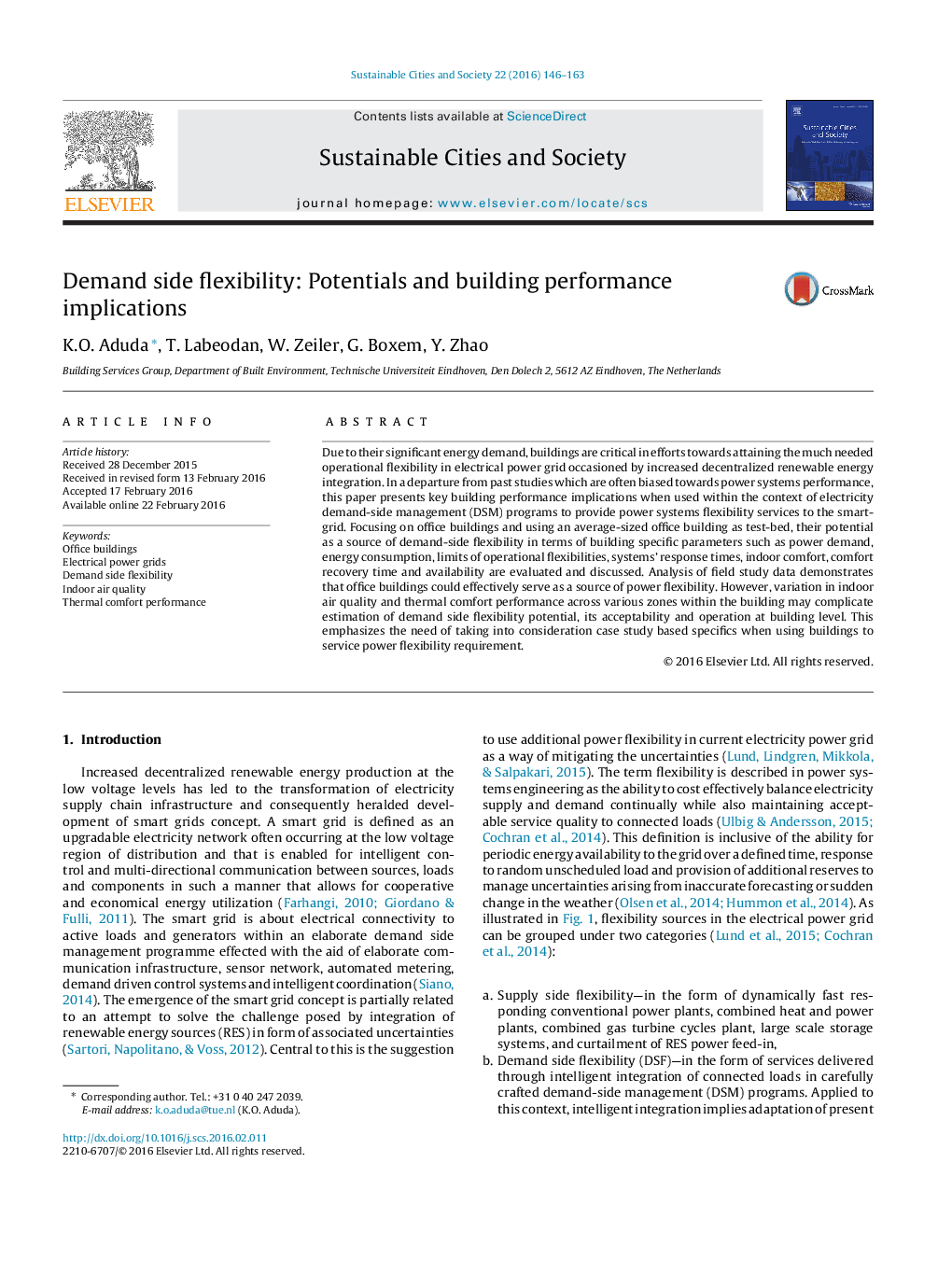| کد مقاله | کد نشریه | سال انتشار | مقاله انگلیسی | نسخه تمام متن |
|---|---|---|---|---|
| 308072 | 513520 | 2016 | 18 صفحه PDF | دانلود رایگان |
Due to their significant energy demand, buildings are critical in efforts towards attaining the much needed operational flexibility in electrical power grid occasioned by increased decentralized renewable energy integration. In a departure from past studies which are often biased towards power systems performance, this paper presents key building performance implications when used within the context of electricity demand-side management (DSM) programs to provide power systems flexibility services to the smart-grid. Focusing on office buildings and using an average-sized office building as test-bed, their potential as a source of demand-side flexibility in terms of building specific parameters such as power demand, energy consumption, limits of operational flexibilities, systems’ response times, indoor comfort, comfort recovery time and availability are evaluated and discussed. Analysis of field study data demonstrates that office buildings could effectively serve as a source of power flexibility. However, variation in indoor air quality and thermal comfort performance across various zones within the building may complicate estimation of demand side flexibility potential, its acceptability and operation at building level. This emphasizes the need of taking into consideration case study based specifics when using buildings to service power flexibility requirement.
Figure optionsDownload as PowerPoint slide
Journal: Sustainable Cities and Society - Volume 22, April 2016, Pages 146–163
